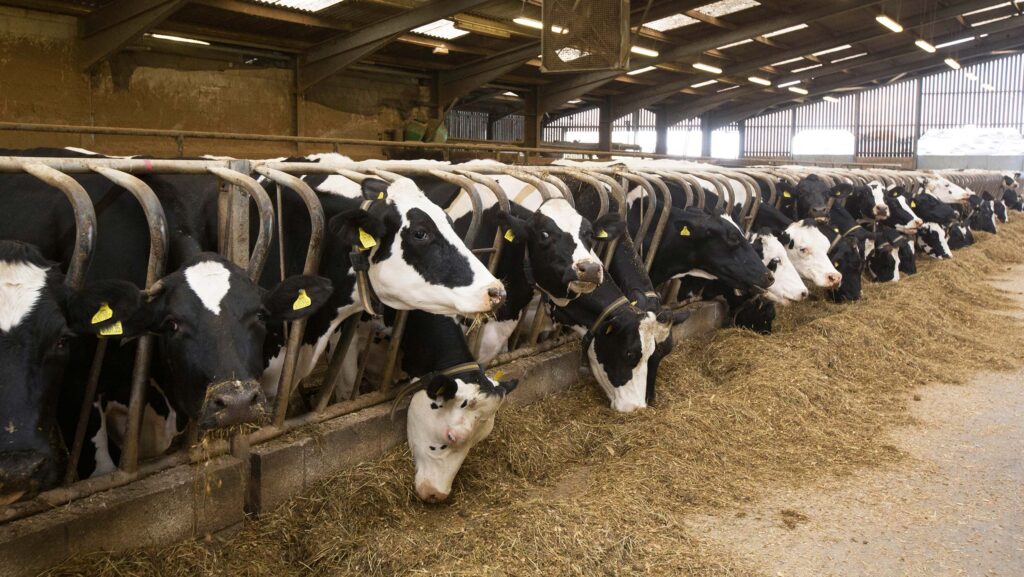Dairy contracts branded ‘not fit for purpose’ as flaws emerge
 © Tim Scrivener
© Tim Scrivener The UK dairy sector is currently conflicted on how effective new dairy contracts really are, with both milk processors and farming groups calling for tweaks to the legislation.
The Fair Dealing Obligations (Milk) Regulations were introduced by Defra last July to fix poor contractual relations in the dairy industry, and were widely welcomed by the sector at the time.
Defra also introduced an agricultural supply chain adjudicator to manage complaints and disputes related to contracts.
However, issues regarding the complaints procedure for farmers, and also tiered milk pricing, have started to surface.
See also: Milk prices set to stay above 40p/litre despite ample supply
Diarmaid Mac Colgáin, founder of Concept Dairy, told Farmers Weekly that while it was good to have legislation in place, it was not fit for purpose in its current format.
Mr Mac Colgáin said: “There is a huge issue over the legal ownership of the milk when it leaves the farm gate, which hasn’t been addressed.
“Secondly, the various steps make producers speak to their processor first if there is an issue, and then you need to go to the adjudicator. A lot of farmers don’t want to do that, they feel it’s a really difficult step – it’s like informing on your bully.”
Mr Mac Colgáin also called for the introduction of mandatory price reporting, so producers can see how prices compare and spot if they are being underpaid.
Impotent
Independent dairy market specialist Chris Walkland also pushed for changes to dairy contracts at the Semex Conference in Glasgow this week, saying they were supposed to give farmers greater power, but have turned out to be “impotent”.
Mr Walkland said third parties such as the NFU can’t complain to the adjudicator on behalf of farmers, since complaints have to come directly from the farmer and they must be named.
“All this legislation is aimed at is the unscrupulous processor, who doesn’t really play fair and honest with their farmers,” he said.
“So, if those processors then start intimidating or threatening the farmer, especially in milk fields where there is no choice of processor, then the farmer is not going to complain, and the farmer is going to be no better off.”
NFU Dairy Board chairman Paul Tompkins confirmed that the adjudicator’s office has said it would only respond if it got a complaint from a farmer.
Mr Tompkins hopes the adjudicator will be more proactive, going out into the marketplace to find issues and trying to resolve them.
Tiered pricing
Dairy contracts currently allow a processor to impose different prices on a producer over a specified volume, such as a two-tiered or seasonality payments mechanism, only if the producer is free to enter into agreements with other milk purchasers.
However, milk processors have already successfully lobbied for amendments to be considered to this part of the legislation.
A new draft amendment seen by Farmers Weekly is due to be pushed through this spring, which will allow co-operatives, such as Arla and First Milk, to bypass this part of the legislation.
There are also concerns among industry that other processors with formal dairy producer organisations representing farmers, such as Muller, may also seek to bypass this in the future.
Mr Tompkins said the amendment was an unhappy compromise.
“Fairness in the supply chain is something we are not just going to take our eyes off, just because the legislation has been passed,” he said.
“We will continue to want to see it evolve until we see a more proportionate balance of power within the supply chain.
“The important thing is we have got the legislation in place. Now, let’s improve it.”
Supportive
However, industry body Dairy UK was more supportive of the latest amendments to the milk contract legislation.
Dr Judith Bryans, chief executive of Dairy UK, said: “The Fair Dealing Obligations (Milk) Regulations are in place and have been working to protect farmers and processors in the course of the buying and selling of milk.
“The amendments being considered on the use of tiered pricing will bring clarity on volume management and will certainly help in the implementation of the legislation, representing a welcome step for the dairy sector.
“Hopefully with these amendments to the regulations, we can now move forward together as an industry.”
